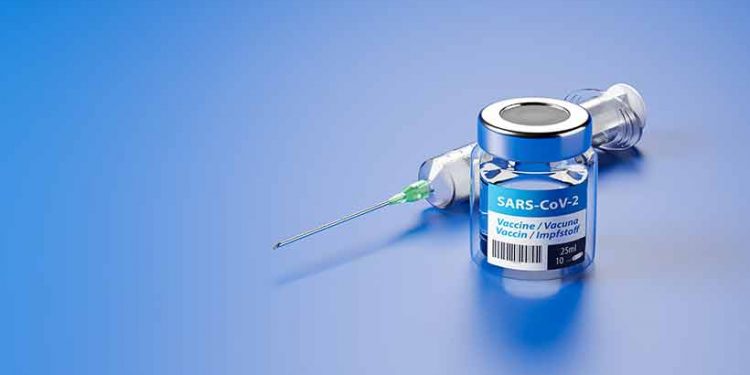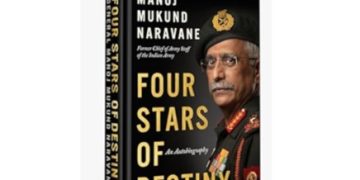Heidi J. Larson
Hugging your parents. Meeting your grandchild for the first time. Laughing with friends – in person! COVID-19 vaccines promise to bring us closer to our loved ones and enjoy the sort of moments we have missed over the past 14 months. The delight of those already immunised is clear: on social media, people are self-documenting and sharing their vaccination moment with the message “I’m protected!”
We cannot afford to lose that enthusiasm, even in the face of recently reported rare instances of blood clotting following some COVID-19 vaccinations.
How those risks are managed, communicated, and – most important – perceived will be crucial to sustaining public confidence in COVID-19 immunisation drives. And in this context, people’s trust in policymakers, experts, and institutions will be as important as trust in the vaccines themselves. Our leaders need to be transparent in their actions and recognise that every day of delay and indecision regarding vaccine communication provides fertile ground for anxiety and misinformation – much of it online.
To reassure the public, we need to change our approach and talk about risk management as an ongoing process, which is the approach scientists and regulatory authorities follow when they evaluate vaccines. Governments create vaccine-safety monitoring systems to observe signs of any possible risks and ensure that guidance is based on the latest data. This is an iterative process and finding a rare side effect means that the system is working.
Scientists and regulators use the same process for any medication, from over-the-counter painkillers to chemotherapy drugs, but it is often invisible to the public. By contrast, COVID-19 vaccines have been designed, approved, and administered under a global spotlight, with every step in the development process and every report of a potential risk magnified and shared around the world. As a result, rare side effects seem more common than they actually are, making it more difficult for the public to evaluate the risk.
The public is capable of managing risk: we do it individually and collectively every time we leave the house, drive a car, or take medication, for example. But people need clear information. In the case of the reported blood clots, this means ensuring that they understand not only the possible risks related to getting a COVID-19 vaccine, but also the risk of choosing not to receive one. Health-care providers and vaccinators must also clearly communicate the possible signs and symptoms of a serious vaccine reaction and help people understand when they should seek immediate treatment.
This is true of all vaccines. Although vaccines are highly effective and save 2-3 million lives globally each year, anxiety about them is not new. The first anti-vaccine league emerged in Britain in the nineteenth century, after the government made smallpox vaccination compulsory. Some thought that vaccination – then known as ‘variolation’ – was unnatural and ‘against God’s plan.’ But while vaccination was far riskier than it is today, many thought the risk well worth taking in the face of a devastating epidemic.
Today, we face COVID-19 – another lethal pathogen that has affected everyone in some way. At the Vaccine Confidence Project, we are monitoring social media globally to understand people’s questions and concerns regarding COVID-19 vaccines, as well as trust-building successes. The most frequent theme we see – in over 200 languages – is an impatient call to put the pandemic behind us. And vaccines are central to achieving this. But, for some, eagerness alone will not be enough to motivate them to get vaccinated. They will first need to feel more confident.
At an individual level, therefore, people need to be able to ask questions about COVID-19 vaccines without being treated dismissively and get the information and support they need to make educated decisions. Doctors and nurses are some of the most trusted members of society, so it is important that they make time to listen to their patients’ concerns in an empathetic manner. But they also need to have the latest information and guidance to communicate to patients and to reinforce their own confidence in COVID-19 vaccination.
At the policy level, governments need to invest in short- and long-term communication and public engagement to support vaccine delivery. And policymakers and scientific institutions must become more agile and learn to speak to the public directly and transparently about important findings.
The key is not only to get vaccine information right, but also to make it relevant to people’s questions, and to build trust by responding in ways that make sense in the context of their daily lives. When the next crisis hits, with different risks, the public will remember how their concerns were addressed during this one.
It is perfectly normal to have questions about vaccines. How we answer them will make all the difference. If we respond well now, and bolster public confidence, we have the chance to establish a relationship of trust that will serve as a solid foundation to meet whatever health crisis comes next.
The writer, Founding Director of the Vaccine Confidence Project, is a Professor of Anthropology and Risk at the London School of Hygiene & Tropical Medicine. ©Project Syndicate.






































